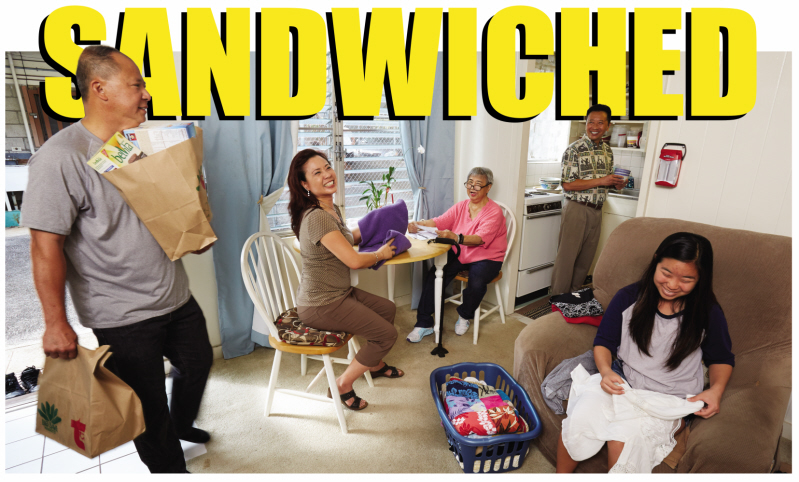
Baby Boomers who have built successful careers and investments for the future are now experiencing the physical, emotional and financial outcomes of caring for their aging parents, while they meet the expense of college or support for adult children who choose to live at home. Boomers who did not plan ahead or who lost their assets in the great recession are caring for their parents at home — households that sometimes include four generations under one roof. Every situation is different and supremely demanding. The total absorption of caregiving and sustaining a household strains family relationships, and leaves little time for rest and quiet. Transitioning parents to a long-term care facility may bankrupt the family, squash college plans, or even risk leaving boomers themselves dependent or destitute in their old age.
Multigenerational families with more than two children never went out of style in Hawai‘i, but young people are drawn away to the Mainland for job opportunities and affordable housing. They raise their families on the Mainland, where education standards are higher. When Grandpa’s and Grandma’s health fails, who takes care of them? Elders often are not able or willing to move, so children manage their care long-distance, or they move back to Hawai‘i as caregivers.
One of the deepest problems is that families who cannot afford professional home care or the cost of a nursing home often feel ashamed and never ask for assistance. Families in Hawai‘I use hospice services half as often as families on the Mainland. Suffering in silence and isolation, “making do,” makes caregiving harder than it has to be. An increasing number of public agencies and nonprofits are creating ways to help.
At every single milestone of life, baby boomers have forged new ways to survive and thrive. Overcoming the financial challenges of the “sandwich generation” will test their mettle, but some are meeting caregiving head-on and succeeding. In this issue, Generations Magazine looks at the unique problems and solutions of three caregivers in the sandwich generation. Their advice is more precious than gold — it comes from experience.
The public Michael W. Yee is a seasoned financial planner who gives advice to people every day about planning their finances for the future — futures that involve aging and long-term care. He’s not just telling his clients what he learned in school or in his years of practice, he and his family are living it every day. His three-generation family includes his wife’s 87-year-old mother, and Mike and his sister and brothers are a caregiving team for their own 78-year-old mom, who chooses to live independently.
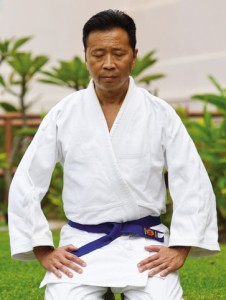
“I get up every morning at 5 am, before every one else in the house. Our son is a senior at Maryknoll, our daughter a sophomore at Sacred Hearts Academy. I make the whole family breakfast every day— fresh eggs, meat fruit, yogurt and an energy bar for my wife before she takes off to work as a nurse in endoscopy. The kids make their lunches, but breakfast is a family tradition. I clean the kitchen as I go, and by 6:30 am, the kids and grandma are in the car, ready to go school and adult daycare. By 8 am, I am entering my office, where I help clients achieve their financial goals. My wife taxis the family home when she gets through work in the afternoon. Two days a week I work until 9 pm for clients who can only meet in the evenings; the other days I pitch in to help the wife pick up the kids and Grandma. We play tag team because the kids have sports, cheerleading and scouts; Grandma has doctors’ appointments. On the weekends, it’s housekeeping, the yard and honey-do lists. On top of this I have to find time to do my mom’s laundry and practice aikido. That’s my schedule.
“Multigenerational family and family caregiving is normal in Hawai‘i; the huge costs of long-term care for Parkinson’s disease, Alzheimer’s disease and debilitating arthritis will cause more families to provide at-home care for their parents, like we do. My mom has suffered two heart attacks and a stroke. Even though her kids are not comfortable with the risks associated with her living on her own, it makes her happy. So my sister, Tammy, who used to be an RN, leads our family care team, to support Mom’s independence. My brothers, Milton and Malcolm, do her grocery shopping and housekeeping, I handle laundry and help her with her finances. Tammy oversees Mom’s medications, takes her to doctors’ appointments and assesses needs as they come up. For now, it’s working, but that could change at any moment and we would have to make a new care plan.
Finances
“I am blessed to have 33 years of learning and experience in financial planning. I do the same for myself as for my clients. We wanted our kids to go to private high schools and away for college, and started saving and investing early. I guess we always knew that we would care for our parents — but it was not as easy. You have to be flexible and adapt. Sometimes caring for an adult requires taking time off and loss of income. Our lives together had to evolve because our parents had a financial life or their own, more or less. Eventually, the finances all come together. That’s a challenge for many families.
“Most people plan for retirement, but don’t plan for the cost of old age. They never thought about paying for assisted living (about $4,200 per month) or skilled nursing care (about $9,000 per month). That’s why 70 percent of nursing home patients are destitute and must rely on Medicaid and the generosity of their relatives. Many of the children go beyond their limits to pay for care, bankrupting their own retirement and straining relationships with their spouse or siblings. Family members have differing opinions about finances and care — leading to conflict and strained relationships at the worst of times. It doesn’t have to be that way, if they would plan and prepare ahead properly. My job is to help families prepare and map their financial life’s journey — to maximize their financial resources and all the services available to them. Planning can protect family relations and give families the possibility to live a life of choice, rather than chance. I have learned through the years that it’s never too late to start; better something than nothing. However, the later you start, the fewer options you have.
“Another issue is what we call ‘The Silent Tsunami.’ Our culture teaches us not to discuss our affairs with others — to suffer in silence. A couple not asking for advice or not knowing whom to trust could be missing the chance to protect their retirement, their legacy and their families. Only about 15 percent of families carry long-term care insurance, but up to 70 percent will need to pay for long-term care.”
Caregiving
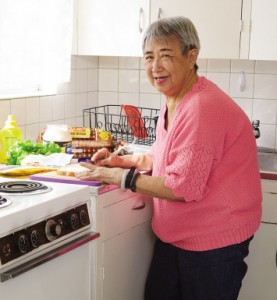
“Someone has to be the leader of the care team. In my house, my wife is the care team leader for her mom and the kids. I’m the follower/supporter. My sister leads a team of her siblings to provide care for my mom. We all share the work, and my sister involves all of us in every decision. She assesses how Mom is doing and brings patience, flexibility, tolerance and creativity to the table when problems arise. Tammy’s nursing experience helps her manage not only the care, but also the family dynamics. She’s great at allowing Mom to live independently and keeping the siblings on the same page.”
Advice
“My son and daughter pitch in, too. When my son volunteered to help with caregiving, I asked him why he wanted to do it. He said, ‘I felt it was my responsibility.’ Never overlook the good heart that makes a person offer to help. It is a gift.
“We are going through difficult times as my son prepares to go to college. I am learning as I go. My family is growing from the challenge of caregiving. Growth comes when we are being tested. I have learned about priorities: a busy life comes down to what matters the most — for necessity, survival and love. It is just as important to find peace and time for yourself as it is to care for your parent — your sanity depends on it. Devote yourself to the ones you love and to yourself. And prepare and plan ahead for the financial journey — I can’t say that enough.”
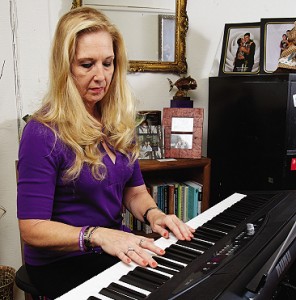
In 1966, Pamela Ah-Nee’s grandma adopted her and her brother. They were raised in a Christian home in West Virginia. In 2004, when her grandmother, who she fondly called “Mom,” first began slipping into Alzheimer’s, the distance between Hawai‘i and the East Coast became even greater. Her sister-in-law would call frequently to inform her about “forgetting,” “poor decision making” and increasingly odd behaviors. Her mom passed in 2012. Remembering and commemorating the wonderful Christian woman who loved her and taught her goodness and grace helps Pamela heal. “It helps me release the memories of her struggle with dementia and how hard it was to be thousands of miles away.”
Pamela now helps clients who are caring for their loved ones who suffer from Alzheimer’s. Her deep compassion and understanding stem from her own experience, losing the grandmother who she called “Mom.”
Loving From Afar
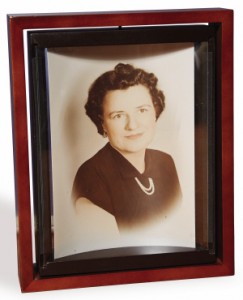
“Mom was 92 and still living in our family home in White Sulfur Springs, not far from my brother, when she died in 2012. I was working and raising my five kids in Hawai‘i and could only afford to go back east for an extended visit once each December. My youngest daughter, Ka‘imi, would go to help me deep clean Mom’s home and assess how she was managing.
“Although she had Alzheimer’s, Mom died of colon cancer, which was already metastasized when doctors discovered it after she fell and broke her hip. She didn’t last long after that, but it was clear that we waited too long to get full-time in home care for her. She had been able to cover her failing memory and “fill in the gaps” for a long time before my brother and I knew that she was losing the ability to reason.
“My mom was a very religious woman who sang in the choir of the International Pentecostal Holiness Church. I was slow to begin speaking, and Mom would encourage me to sing — a hymn was my first words. Singing and music is deeply important to me, and when I want to find peace, I play my piano and sing. When Mom was dying and could no longer speak, I sang hymns to her, and she sang along — remembering every word.
“At age 70, Mom started going with the ladies of the church to a local nursing home once a week, to sing for the clients, comb their hair and take care of them. At 83 she was still volunteering at the nursing home.
“Mom was an independent and very social woman with a bright mind and a great sense of humor. She took care of Grandpa when he became ill. She was very social, but also very resourceful. My brother and I learned how to grow vegetables in her garden, we learned to hunt game and dress the meat before putting up in the freezer. She taught us Bible verses and demonstrated love, being truthful and how to help others in need. She said we should never allow others to be abused or hurt. At the end of her life, she asked my brother and me to promise we would tell people we meet that God loves them. She said there were too many people in this world who do not feel loved.
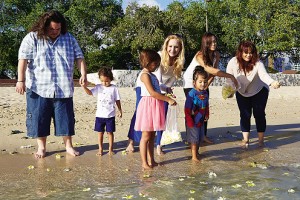
“When Mom became forgetful, my brother and his wife in West Virginia acted as caregiving point persons, calling and checking in on her regularly. Mom lived independently and lots of neighbors and long-standing friends visited her and checked in on her daily. If anything at all seemed wrong, they would call my brother or his wife and report it. As a counselor and an educator, I could offer advice from Hawai‘i and help assess changes on my trips to West Virginia.
“With dementia it is sometimes difficult to detect the changes in personality and behavior that are clear signs of deterioration. The family is sometimes in denial, or the loved one finds ways to cover up their forgetfulness. In Mom’s case, she was very good at “filling in the gaps” in her memory. If she were recounting a story and could not remember something, she would just make it up. As long as she had the ability to deduce — her active mind was never at a loss for an answer. At first my brother and I would correct Mom with the facts, and sit her down for a ‘reality check.’ Here we were correcting the person who taught us to be truthful at all times! We were shocked that our Mom would lie to us, and began to question if she had been lying to us all along. We missed recognizing that the behavior was a resultof the disease and reacted to her fabrications as if she were a whole person. This is a big pitfall that many family members fall into.
“‘Having a talk’ is how we might correct and train our children when they tell a lie, but the difference here is that Mom could not respond to training. She was losing her grip on reality, had a diminished ability to reason, and could not be held accountable for her actions. We reacted in frustration and anger — not realizing that the rational logic of the principled woman we loved and respected was slipping away.
“It took a long time to process the changes in Mom’s behavior, and now we can look back without negative emotions and even laugh at some of the weird stories she ‘dreamed up.’ One time my daughter and I went for an afternoon of skiing, and got caught in traffic on the way home. Grandma was in her chair weeping. ‘How did you make it through the fire?’ she asked. She was in a panic because she was watching a news report from San Diego about an arsonist, with pictures of homes on fire. She knew we were gone and thought we were the people in the fire on TV. For Mom, all sensory input became part of the ‘here and now.’
“When I was trying to get Mom to wear Poise for incontinence, we had a nice long talk about the advantages and how to use them. I told her I would buy her a large package of them at Costco.
“She replied, ‘Oh, don’t spend all that money, I will only wear them once a month — only for one or two days.” I ended up just throwing away all her scraps of cloth she was wadding up in her panties, so she had to use the Poise. That worked better than the training session.
“Another time she told people that a minister at our church had molested three girls in the church and everyone was trying to keep in under wraps. Soon, members of the congregation got up a posse to confront the minister, who was devastated. He asked, ‘Grandma, how could do this to me?” That is a question my brother and I often asked. It comes from a lack of understanding the disease of Alzheimer’s and failing to accept that your love one is not capable of rational thought. They are not making decisions based on reality or discriminating between fact and fiction.
Our Gained Wisdom…
“During the time of my long-distance caregiving, I was also educating the last of my five children, and following Mom’s passing, went through a divorce. It was a terribly painful time; full of difficulties. As far as advice for other caregivers, I think it is very important to get an early diagnosis for any kind of dementia. Educate yourself and prepare for the worst. Many caregivers take things to heart as my brother and I did. Take time to find out what others have already learned.
“If you live at a distance, you need a support team. And be sure to include anyone who knows that things are not right and wants to do part of the work. If people don’t want to help but just want to give advice, it’s best not to include them. The person with dementia needs others to accommodate their loss. At first, a person may need only prompting or a little help, but eventually, caregivers will become responsible for all personal care. Last of all … don’t forget … always remind your family member that they are loved!”
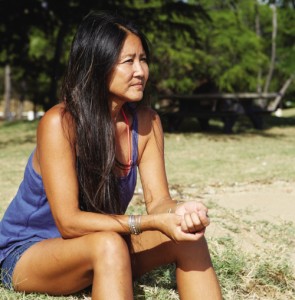
Isolation is reality on Moloka‘i. Basic services are minimal: groceries, fuel, hardware, baked goods, sundries and a couple of local watering holes are about it for downtown Kaunakakai. In a small community, the coconut wireless can be a blessing and a curse, so families keep their “personal” trials secret, preferring to bear their burdens alone.
Lorri Misaki grew up on Moloka‘i helping at the family business, Misaki’s Grocery, as all her family did. In high school, she decided to follow her dreams to be a graphic artist on the Mainland, and when the time came, she returned to Moloka‘i to take care of her elderly parents.
On-
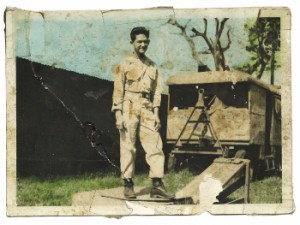
“After 30 years in Oregon, I returned to care for my father and mother, who were getting very forgetful and hard to manage, and still working in their 80s. I really felt it was my destiny, but I didn’t know the daily struggles associated with dementia — repetitive questions and actions. Coping is even harder when the communication bridge is hampered by deafness. Dementia is different in every patient — my Dad was hyperactive and bent on running away. He could not be left alone for even a short while. It was like keeping track of a toddler who ran around all day — and then he got up at night and would go outside. “Mom suffers dementia, too, but she is not very mobile. She is very hard of hearing and just starting to get up at night.
“My mom still goes to the grocery store every day to ‘help out.’ It’s her social life and she enjoys talking to all the customers. They all make a fuss over her, too. She cannot always hear what they are saying, but the interaction brightens her spirit. When Dad was alive, I had to take him along on every errand. It was easier and safer to leave him in the car when I dropped off a bill or went into the store to get Mom. Once in a while, he would figure out how to open the car door and run away. Lucky that Moloka‘i is a small, caring place. Most everyone knew Dad, and they would call my brother at the store if they saw him out on his own. But there is a flip side. I was accused of not taking good enough care of him, too. That hurt.
“In the beginning, no other family members offered to help me and I felt too guilty to ask my brother, who is so overloaded with the store. Adult daycare is minimal on Moloka‘i, and services for dementia patients is nil, so I just managed everything on my own. After many months of sleep deprivation, I realized that my own health was in jeopardy. I did my best, but it was not working.
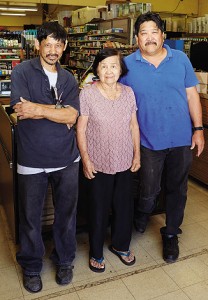
“Finally, my older brother, Kevin, woke up to my situation. It often takes a bad situation to create a better one. In the few hours he could spare from work, Kevin came by and cared for our dad’s needs: cook his meals and feed him. Later in the evening he returned to carry dad to bed, because I had developed back problems lifting dad on my own. Kevin did this almost every day, and he also found a day shift caregiver for five days a week.
“This caregiver was a gem! He was a great companion for Dad, and became a friend for me in those days when I had no social life. I was now able to clean the house more thoroughly, finish projects, care of my own needs and even go to the beach without worrying about my parents. But Dad got worse and became bedridden. He needed to be cleaned and turned every two hours and I became sleep deprived again.
“When our caregiver had to attend to his own family, I gave Dad 24/7-care for over a month — however, I did have help two nights a week. I continued to search for more night shift help through a service provider, but was unsuccessful. After further searching, I found a CNA through the ‘coconut wireless,’ who would work the night shift. Ahh … finally … sleep!
Slowly Passing Away
“Alzheimer’s disease hurts everyone. The person I cared for was not really my joyful Dad anymore. He spoke little and swore when he didn’t like something. He hallucinated things that were not there. Medications affect every patient differently. We finally found one that made him stop hallucinating. Over time, his kidneys began to shut down and he died in the hospital — but I had already lost my Dad long before.

“Dad passed last July, and I totally miss him. Taking care of him was one of the hardest things I ever did because I loved him so much. I am very glad that I came home to care for him.
“Now it is easier just taking care of Mom. I have a caregiver one day a week so I have a full day to myself. I tell you that day is the greatest gift. I have learned a lot along the way. When I was in high school, I wanted my grandmother to live with us, but my mom didn’t want to do it. Now I understand why. My mom is 88 and her mother lived to be 101. I hate to say it, but I don’t think I can be a caregiver that long. Moloka‘i does not have a nursing home, so we are being creative and looking at care facilities on other islands.
Choosing a Caregiver
“Another concern is how my mom responds to my care. Growing up, my temperament was so different from my mom’s. She seems to relate better to my brothers. I chose to be her caregiver, but I think if it were up to her, she would want my oldest brother to care for her — she always listens to him. My mom is grateful for what I do, but in the old school, I am the youngest child and a girl. I love my mom, but really think caregiving works better if the patient chooses which caregiver they want. This person is your parent, but to accomplish what you must do and not react emotionally, you have to treat them as a patient. Sometimes what’s best for the patient is beyond your capabilities.
Lorri Recommends
“Actually being creative and finding your own solutions for your specific problems is such a big part of the caregiving job — because patients and situations are constantly changing. My advice to other caregivers is to balance your own health and the well being of your loved one. You don’t want to take your parent to a medical appointment and have the doctor admit you to the hospital! Above all, find a place where you can have time to unwind and get centered.”
THE SILVER TSUNAMI
The sandwich generation are the baby boomers who face the challenges of supporting their college-age children and elderly parents at the same time. Taking on family leadership in midlife is nothing new — Every generation takes its turn. What draws our attention to boomers are their enormous numbers — now 76.4 million in the U.S.
According to the latest U.S. Census Report, 76.4 million baby boomers born between 1946 and 1964 began turning 65 in 2011. As they continue to become seniors, the “65-and-older” segment of the U.S. population will slowly swell to 20 percent by 2029.
Census data also shows that 18 percent of America’s families are comprised of three to four generations. The number has doubled since 1980 because 24- to 35-year-old adult children are living with their parents. The greatest increase was during the great recession of 2007–08, but the upward trend continues.
Sandwiched baby boomers will face steep financial challenges twice in their lives: caregiving their family, and caring for themselves in old age:
The Cost of Long-term Care in Hawai‘i
Adult Daycare (5 days/week) $ 18K
Homemaker Services (5 days/week) $ 49K
Home Health Aids (5 days/week) $ 52K
Assisted Living $ 50K
Nursing Home: semi-private $ 128K
private $ 145K
Source: AARP 2011 Survey
The Cost of Higher Education
Private College Annual Tuition $ 31K
Public Universities Annual Tuition:
In-state students $ 9K
Out-of-state students $ 23K
Source: 2014 College Handbook


Leave a Reply